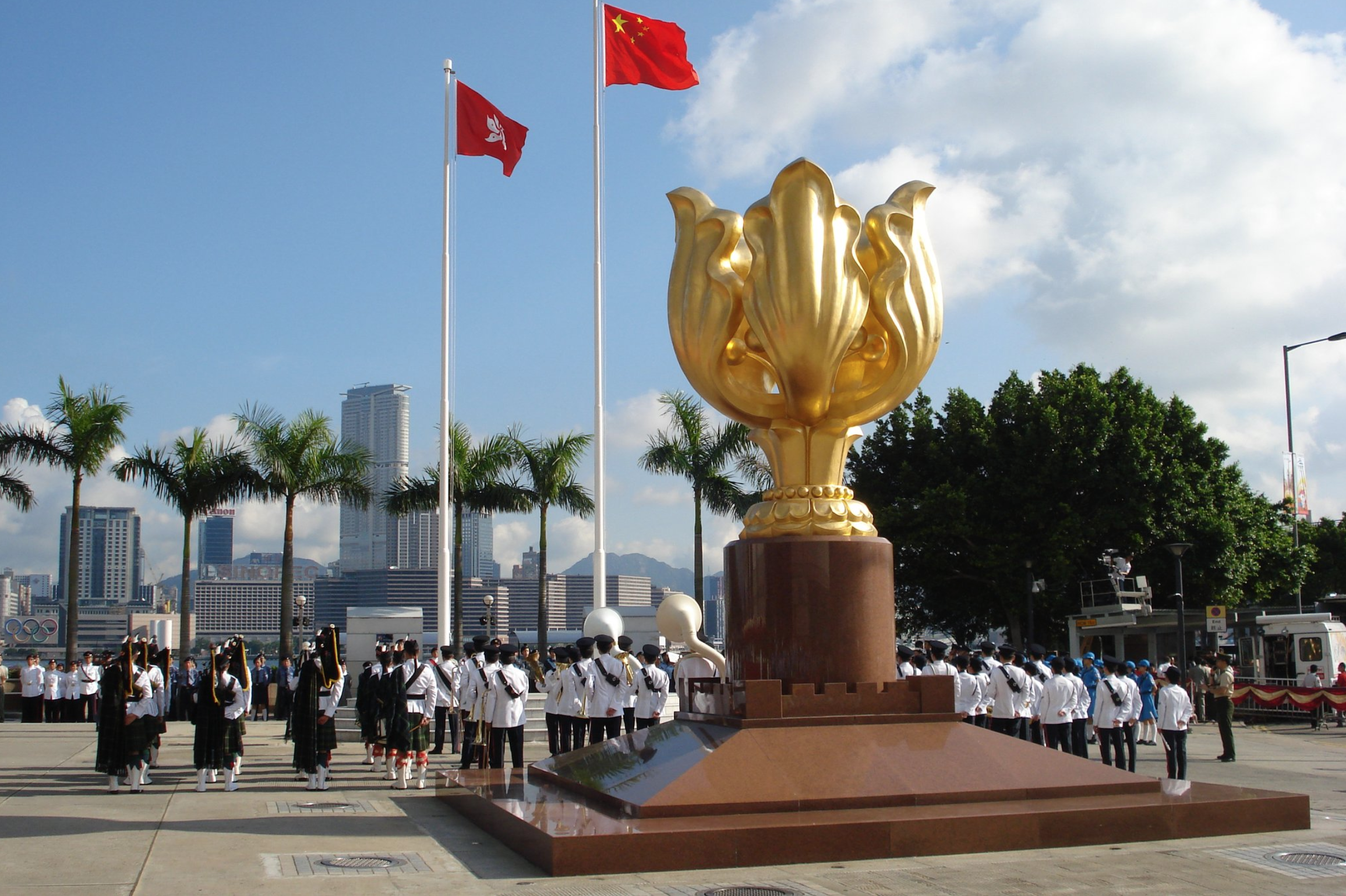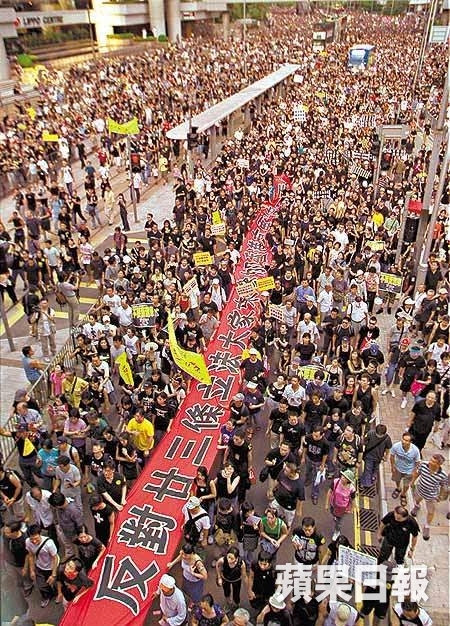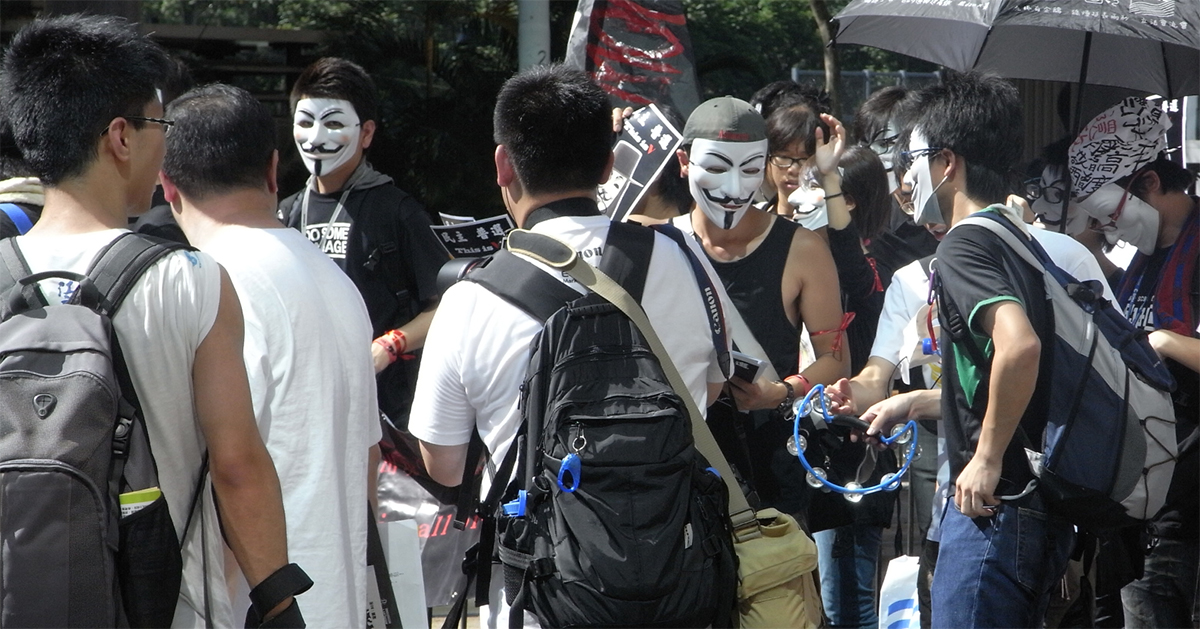July 1 is a significant day for many Hongkongers, besides being a public holiday known as HKSAR Establishment Day.
On this day in 1997, Hong Kong was returned from British to Chinese rule, marking the transfer of sovereignty to China and the end of the city's colonial era, where SAR stands for "Special Administrative Region".
A day for protests
Since then, activists have organised a march every handover anniversary, with large crowds brought out to the streets.
Crowd size has been indicative of how things have been.
In 2014, it culminated in a two-month occupation of parts of the city centre with calls for Hongkongers to elect its own leader, but failed to win any concessions from Beijing.
This year's rally will end at the parliament building.
And it has been framed by unprecedented anti-government protests in the past three weeks that have drawn millions.
July 1: HKSAR Establishment Day
For the July 1, 2019 edition of the rally, protesters have taken over the streets again, as clashes with police have been reported.
However, this isn't just part of an ongoing protest against the extradition bill.
 Image via MatrixCellular/Unsplash
Image via MatrixCellular/Unsplash
If the crowd figures swell, it means dissatisfaction is high.
And it is not just triggered by one event that has seized the city dwellers' collective energies.
July 1 also marks the annual pro-democracy protest
Thousands of people take to the streets every July to voice their political concerns during the annual march.
The annual protest was originally organised by the Civil Human Rights Front since the city's handover in 1997.
It is the same organiser of the anti-extradition protest that saw two million citizens marching to the government headquarters.
The last time the July 1 protest hit a high was in 2003.
That was when the government attempted to push for national security legislation, widely known as the anti-secession law or Article 23 in Basic Law.
Some 500,000 citizens joined in the protest that year.
 Image via Apple Daily
Image via Apple Daily
2003 an important milestone
Under the Article, any act of "treason, secession, subversion and sedition" against the Chinese government would be prohibited.
Foreign political organisations would also be banned from conducting activities in the territory and establishing ties with local political organisations.
Many feared that their rights, such as freedom of speech, freedom of assembly and press freedom, would be curtailed if the Article was implemented.
Under tremendous public pressure, the government withdrew the bill, which was later shelved indefinitely.
Since then, the public have been marching on July 1 to express political dissent, and voice out demands for democracy and universal suffrage.
Tightened security as July 1 march takes place
In light of the recent large-scale demonstrations, the traditional July 1 flag-raising ceremony was moved indoors, with police officers deployed and the city's main convention center in Wanchai sealed off, reported SCMP.
Carrie Lam enters the ‘indoor ceremony’. If only you withdrew the China Extradition Bill... now you’ve turned this into an anti CCP movement. Enjoy watching your flag on TV #HongKong pic.twitter.com/OgBV4VXMsD
— Hong Kong World City☔️🖐🏻👆🏻 (@HKWORLDCITY) June 30, 2019
A flag-raising ceremony is held annually at the Golden Bauhinia Square, where a giant gold sculpture of the city's emblem, Bauhinia, stands.
Top officials, uniformed groups, as well as the public gather at the square and sing the national anthem as they watch the national flag being raised, and celebrate the handover of Hong Kong.
Open and accommodating
During the ceremony and speech, Hong Kong Chief Executive Carrie Lam acknowledged the public dissent over the extradition bill, and promised to be "more open and accommodating" as she continues to serve in the government.
Reuters reported Lam saying:
"This has made me fully realise that I, as a politician, have to remind myself all the time of the need to grasp public sentiments accurately."
She also said she would reform the government's response to public opinions, as well as being more responsive to public sentiment by spending more time with people from different political parties and backgrounds.
Will words like these alone be enough for Hongkongers?
2020's July 1 march shall be closely watched to see how much bigger or smaller it will get.
Cover photo via Wikipedia.
If you like what you read, follow us on Facebook, Instagram, Twitter and Telegram to get the latest updates.
